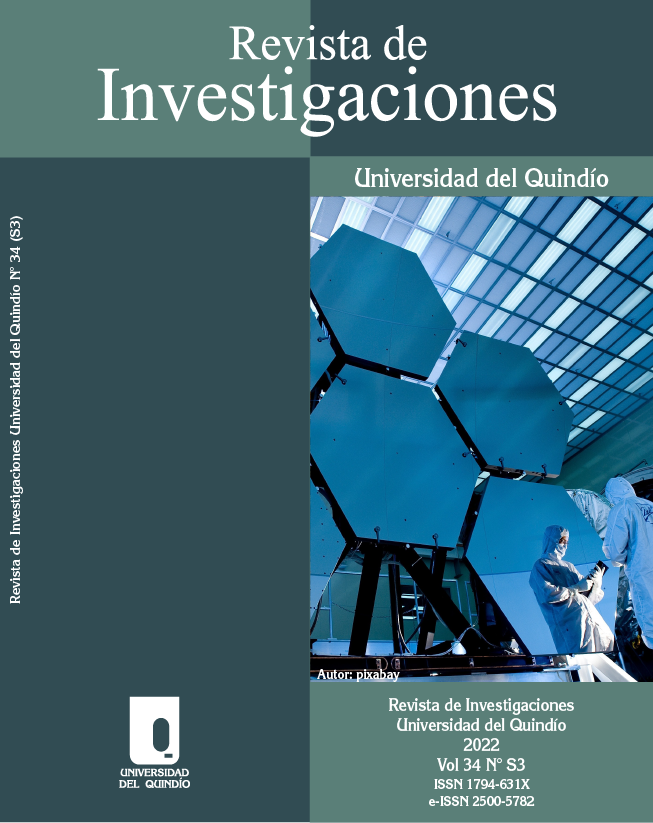Big Data como objeto de una transacción en volumen de negocios civil bajo la ley de la Federación Rusa
DOI:
https://doi.org/10.33975/riuq.vol34nS3.1075Palabras clave:
grandes datos, objetos de los derechos civiles, recursos digitales, propiedad intelectual, informaciónResumen
El artículo tiene como objetivo investigar las cuestiones relativas a la definición del concepto de big data, así como el problema de la transferencia civil de big data en la legislación de la Federación Rusa. Se analizan aproximaciones a esta definición consagradas en actos jurídicos doctrinales, así como investigadas en la literatura jurídica. Se consideran las características y peculiaridades de los grandes datos. Se concluye sobre la necesidad de legislar las categorías básicas en el campo del big data con el fin de aclarar el lugar de este objeto en el sistema de objetos de derechos civiles. El estudio también ha analizado los riesgos de la inclusión de big data en la facturación del derecho civil. Dados los resultados, un enfoque sustancialmente efectivo para regular las formas civilizadas de circulación de big data deberían ser los mecanismos establecidos de responsabilidad civil por el uso de big data que ha resultado en la derogación o limitación de los derechos de los ciudadanos.
Descargas
Citas
Boltanova, E. S., & Imekova, M. P. (2019). Genetic information in the system of objects of civil rights. Lex russica, (6), 110-121.
Chudinovskikh, M., & Sevryugin, V. (2019). Cryptocurrency regulation in the BRICS countries and the Eurasian Economic Union. BRICS law journal, 6(1), 63-81.
Fondahl, G., Filippova, V., Savvinova, A., Ivanova, A., Stammler, F., & Hoogensen Gjørv, G. (2019). Niches of agency: Managing state-region relations through law in Russia. Space and Polity, 23(1), 49-66.
Hilbert, M. (2016). Big data for development: A review of promises and challenges. Development Policy Review, 34(1), 135-174.
Iasechko, S., Puzyrnyi, V., Puzyrna, N., Kostiuk, N., Bakhnovska, I., & Litvinova, I. (2020). The investigation of peculiarities of the occurrence of subjective civil rights in registration of a patent. J. Advanced Res. L. & Econ., 11, 844.
Kalinina, O., Alekseeva, L., Varlamova, D., Barykin, S., & Kapustina, I. (2019). Logistic approach to intellectual property. In E3S Web of Conferences (Vol. 110, p. 02103). EDP Sciences.
Novruzova, O. B., Pronina, Y. O., Shergunova, E. A., & Gorevoy, E. D. (2019, December). The contract of power supply during the era of the digital law: civil bases. In Institute of Scientific Communications Conference (pp. 553-560). Springer, Cham.
Petrenko, S. (2018). Big Data Technologies for Monitoring of Computer Security: A Case Study of the Russian Federation (pp. 1-249). Springer International Publishing.
Popkova, E. G., & Sergi, B. S. (2020). Human capital and AI in industry 4.0. Convergence and divergence in social entrepreneurship in Russia. Journal of Intellectual Capital.
Schneider, I. (2018). Bringing the state back in: Big Data-based capitalism, disruption, and novel regulatory approaches in Europe. In The Politics of Big Data (pp. 129-175). Routledge.
Shackelford, S. J. (2016). Protecting intellectual property and privacy in the digital age: the use of national cybersecurity strategies to mitigate cyber risk. Chap. L. Rev., 19, 445.
Sidorenko, E. L., & von Arx, P. (2020). Transformation of law in the context of digitalization: Defining the correct priorities. Digital Law Journal, 1(1), 24-38.
Zharova, A., & Lloyd, I. (2018). An examination of the experience of cryptocurrency use in Russia. In search of better practice. Computer Law & Security Review, 34(6), 1300-1313.
Descargas
Publicado
Cómo citar
Número
Sección
Licencia
Derechos de autor 2022 Revista de Investigaciones Universidad del Quindío

Esta obra está bajo una licencia internacional Creative Commons Atribución-NoComercial-SinDerivadas 4.0.


